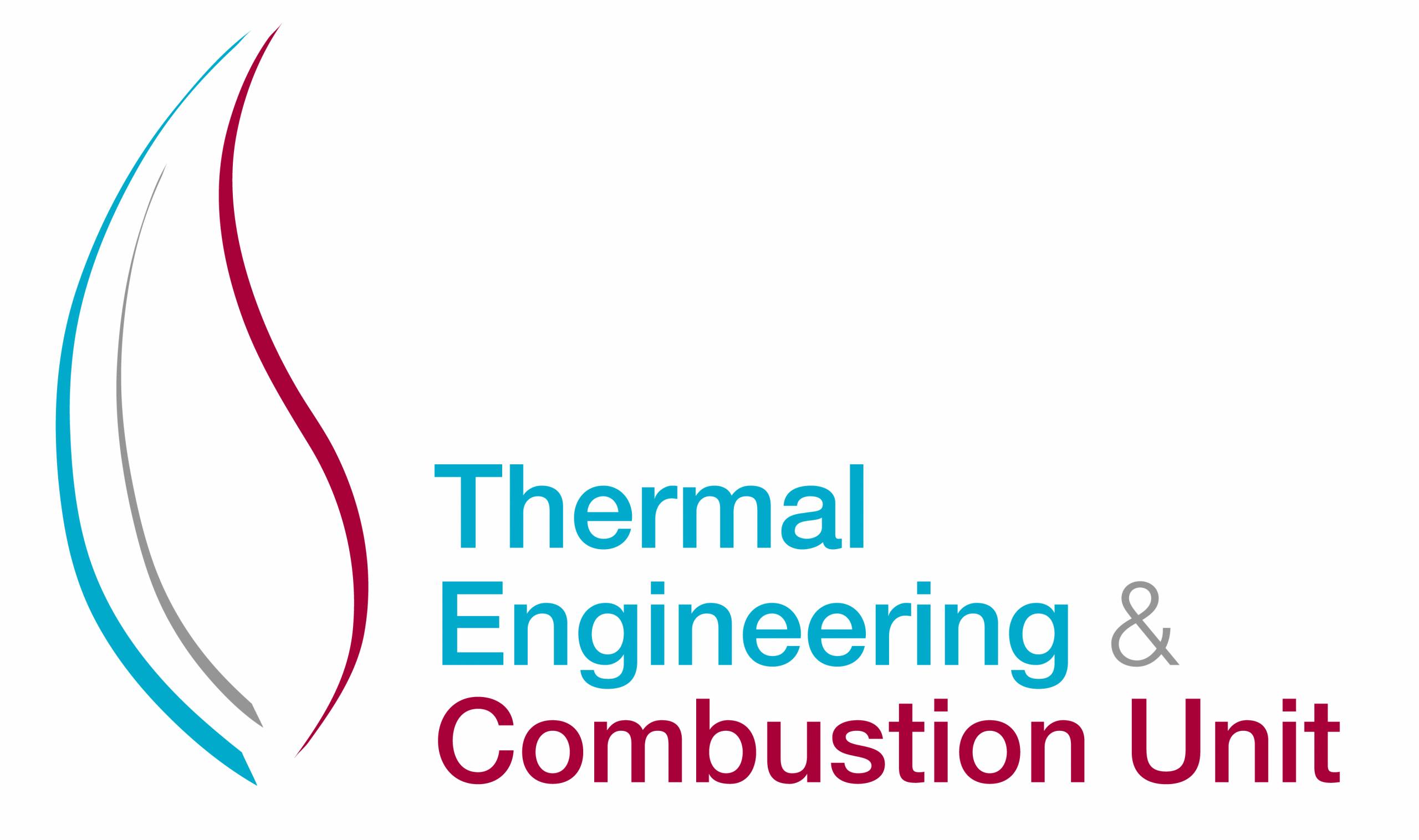Bienvenue sur la page consacrée aux projets de recherche de notre service, spécialisé dans les domaines de la thermique et de la combustion. Nos travaux se concentrent sur des problématiques clés telles que l’optimisation de l’efficacité énergétique des bâtiments, l’amélioration des performances des turbines à gaz, ainsi que le développement de solutions pour la capture et la réduction des émissions de carbone.
Grâce à une approche interdisciplinaire et à des partenariats étroits avec l’industrie, nos projets visent à relever les défis énergétiques actuels et à anticiper ceux de demain. Vous trouverez ci-dessous une sélection des recherches en cours, chacune contribuant à l’innovation technologique et à la transition vers un avenir énergétique durable.
Projets actuels:
BE-HyFE: Belgian Hydrogen Fundamental Expertise
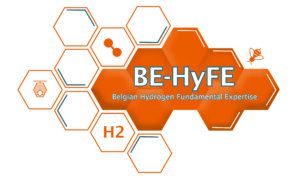 BE-HyFE is a Belgian academic collaboration project, funded by the federal Energy Transition Fund, bringing together all Belgian knowledge institutes to join forces in fundamental research on the topic of hydrogen.
BE-HyFE is a Belgian academic collaboration project, funded by the federal Energy Transition Fund, bringing together all Belgian knowledge institutes to join forces in fundamental research on the topic of hydrogen.
Hydrogen is currently experiencing a ‘momentum’, both politically and in the industry. Belgium has a lot of assets in the field of hydrogen: the largest hydrogen pipeline network in the world crosses our country, Belgium has a strategic position in Europe, and many companies in Belgium have hydrogen technology in-house.
Additional academic fundamental research is crucial for providing solutions to the many technological and non-technological challenges posed by the role of hydrogen in our energy transition. At the different Belgian universities and knowledge institutions, the expertise is highly specialized and outstanding. However, the research is fragmented, and collaboration between the institutions (in the domain of hydrogen) is at this time rather limited, which is a missed opportunity.
With BE-HyFE, we want to strengthen the cooperation between the Belgian hydrogen research groups and, by additional fundamental research in hydrogen, stimulate an interdisciplinary approach to create an academic hydrogen backbone for the Belgian industry.
Website: www.behyfe.be
Start and end year: 2021 – 2026
Results:
Sponsored by: SPF Economie

CORRUGATE
Green hydrogen appears as a complementary solution to decarbonize the industry, transport, and storage in the future. Nevertheless, various problems arise for hydrogen combustion, such as flashback at a larger scale and intrinsic mechanisms at a smaller scale. The thermodiffusive (TD) combustion instabilities originate from the strong differential diffusion of hydrogen, leading to significant flame wrinkling and strong irregular flame front corrugations. In addition, the flame structures created by such intrinsic instabilities lead to enhanced flame speed propagation and higher consumption speed, accelerating flashback apparition. The interaction of such TD instabilities with turbulence has yet to be accurately predicted using present-day combustion models. The overall goal of this project is thus to numerically characterize TD instabilities of lean premixed hydrogen flames in Gas Turbine conditions using high-fidelity simulations and fill the research gap on TD instabilities with turbulent flows.
Start and end year: 2024 – 2027
Results:
Sponsored by: F.R.S – FNRS
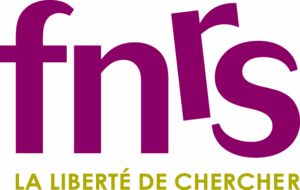
CRUCIAL_AEFmGT
The CRUCIAL_AEFmGT project aims to develop an e-fuelled mGT with an efficiency of 40% and a flexible heat/power ratio of 0.5 to 3, focusing on innovative cycles and specific components. The micro-gas turbine (mGT) is seen as a promising option for using pure hydrogen (H2) in small-scale cogeneration in a distributed energy system (DES). To improve electrical efficiency by up to 40% and enable decoupled production of heat and electricity, it is electricity, it is necessary to increase the turbine inlet temperature (TIT) or adopt cycle innovations.
Start and end year: 2023 – ????
Results:
Sponsored by: FEDER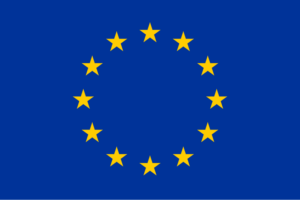 Funded by the European Union
Funded by the European Union
FIT4MICRO
FIT4MICRO aims to design and demonstrate a highly efficient micro combined heat, cooling, and power (micro-CHCP) system powered by renewable energy.
Today, the European building sector remains one of the most difficult to decarbonize. It is still heavily dependent on fossil fuels, with 75% of its energy consumption coming from such sources. The sector is responsible for 36% of greenhouse gas emissions, while the annual rate of deep renovations across the EU28 remains as low as 0.2%. These figures highlight the urgent need for innovative solutions.
The FIT4MICRO project offers such a solution, based on a hybrid micro-CHCP system that operates on biofuels and is capable of providing renewable heating, cooling, and power generation. By integrating a microturbine with solar photovoltaic panels, the system is designed to operate flexibly and efficiently.
The technology developed within FIT4MICRO will contribute to greater socioeconomic and environmental sustainability in the residential sector. It will also increase the availability of renewable fuels for domestic use and support the transition toward a more flexible and resilient energy system.
Within the Fit4Micro project, the Thermal Engineering and Combustion research unit is tasked with implementing a humidification strategy in the micro gas turbine to enhance electrical efficiency and enable a flexible heat-to-power ratio.
Start and end year: 2022 – 2026
Results:
Sponsored by: Horizon Europe – Research and Innovation Action

Funded by the European Union
FLEXC4GT
Start and end year: 2023 – 2027
Results:
Sponsored by: FNRS – ASP

HYDROGENATE
In the context of an ever-increasing share of renewable power, the need for energy storage — not only in the short term but also in the medium to long term — will become increasingly important to ensure grid stability. One of the most promising options for mid- to long-term storage is the production of hydrogen via electrolysis, using excess renewable electricity. Rather than using this hydrogen to generate electricity in conventional large-scale power plants, a more efficient approach is to integrate it into Decentralised Energy Systems (DES), using micro gas turbines (mGTs), potentially in cogeneration applications. Although mGTs show promise for converting pure hydrogen into electricity, a key challenge is that their combustion chambers are not currently capable of supporting pure hydrogen combustion. The main issues are related to flame stability and NOx emissions.
The primary objective of this project is to characterise hydrogen use in a classical mGT combustor and in flameless (MILD) mode, ultimately aiming to develop a 100% hydrogen-capable, highly fuel-flexible, low-NOx, flameless combustion chamber for mGT applications. The project will assess the behaviour of hydrogen combustion during the transition from classical to flameless modes. In addition, the impact of hydrogen addition in a conventional mGT combustor will be evaluated, both at the component level and across the entire cycle. Several strategies to reduce hydrogen reactivity for enhanced flame stabilisation — such as exhaust gas recirculation and humidification — will also be assessed, both at the combustor and system levels.
Insights from both numerical simulations and experimental validation will be used to guide the specific development and design of the 100% hydrogen-compatible, fuel-flexible flameless combustion chamber, which will ultimately be tested on a pressurised test rig.
Start and end year: 2022 – 2026
Results:
Sponsored by: FNRS

ILES
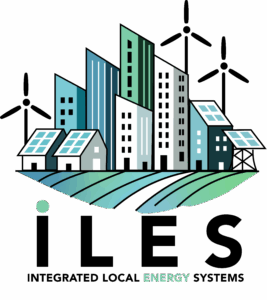 ILES (Integrated Local Energy Systems) is a project portfolio supporting industrial projects presented in other FTJ (Just Transition Fund) portfolios. ILES falls under Priority 6 of the FEDER-FTJ programming: a Wallonia focused on a just transition, specifically within Measure 21 (Support for R&I actions – Development of research projects).
ILES (Integrated Local Energy Systems) is a project portfolio supporting industrial projects presented in other FTJ (Just Transition Fund) portfolios. ILES falls under Priority 6 of the FEDER-FTJ programming: a Wallonia focused on a just transition, specifically within Measure 21 (Support for R&I actions – Development of research projects).
ILES is thus a portfolio of research projects in the field of technological and software solutions related to Energy Communities. This choice is justified by the fact that the concept of Energy Communities is likely to play a key role in the energy transition and in its socio-economic valorization in Wallonia.
The research activities will focus on Energy Communities from a systemic perspective. These communities are based on the use of mature technologies or those with a TRL>5 level. The portfolio will include the development of innovative technologies (energy conversion and storage) and demonstration in a simulated environment of technological couplings (e.g., energy conversion-storage or CO2 conversion/capture). It also includes the development of digital tools and methodologies for integrating energy systems into energy-sharing communities, which will be demonstrated in real-life situations.
The expected R&D outcomes are methods, methodologies, and technologies that will enable the accelerated development of heat-cold-electricity Energy Communities in Wallonia, which can be commercially exploited by industrial partners across Europe.
The TRMI service is involved in the project to determine the heating and cooling needs at the building and neighborhood levels across different time scales, with the goal of mapping the energy needs of buildings in Wallonia. This determination will be carried out through a grey-box approach, treating the building as a resistance and capacity diagram (RC model).
Website: europe.wallonie.be/programmation-2021-2027/presentation
Start and end year: 2024 – 2028
Results:
Sponsored by: FEDER-FTJ

Funded by the European Union
RESTORE

Flaring gas contributes significantly to climate change. It is estimated that emissions from flaring, venting, and leakage of methane or carbon dioxide along the petrochemical gas supply chain account for 2.7 Gt of CO₂-equivalent emissions annually. This practice also has serious environmental consequences due to the release of soot, nitrogen oxides, and other pollutants caused by inefficient or unstable combustion processes. Moreover, gas flaring represents an enormous waste of valuable energy, with an estimated 200 billion cubic meters of gas flared or vented into the atmosphere in 2018 alone.
The RESTORE project aims to implement a hybrid micro gas turbine (MGT) and solid oxide fuel cell (SOFC) system at Technology Readiness Level 5 (TRL 5), functioning as a highly efficient combined heat and power solution to eliminate carbon-emitting flaring. The RESTORE system consists of four main components. First, a steam reformer (SR) converts flare gas into a gas mixture suitable for use in the fuel cell, while also harnessing part of the heat produced by the SOFC and the oxy-combustor (OC). Second, a high-temperature solid oxide fuel cell (SOFC) generates both electricity and heat. Third, a recuperated microturbine (MGT) integrates an oxygen-nitrogen separation membrane unit, which supplies air to the SOFC and oxygen to the OC for burning unconverted fuel from the SOFC anode. Finally, a carbon capture unit (CCU) condenses water from the CO₂-rich exhaust gases of the SOFC and OC, enabling CO₂ recovery for recycling, storage, or further conversion into other valuable products.
Start and end year: 2025 – 2028
Results:
Sponsored by: CET Partnership
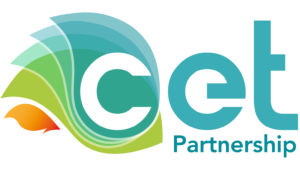
ANCHOR
Producing heat at high temperatures (200-400°C) for industrial processes (chemistry, food, and paper industry) is still realized using fossil fuels. Consequently, being an important energy consumption sector, a large amount of CO2 is emitted annually. To achieve net-zero CO2 emissions by 2050 as desired by the European Union, technology driven by renewable energy must emerge to electrify this sector. For this reason, high-temperature heat pumps,(HTHP), based on a Reversed Brayton Cycle (RBC), offer a promising solution. However, this type of cycle suffers from low COP, around 1.8, so there is a need to improve it. One way to do so is to valorize the cold heat flux from the process. Indeed, it can be very usefull for the food industry which needs heat to cook and to dry but also cold to freeze. For all these reason, the ANCHOR project aims at investigating the combined use of cold and heat production based on reversed Brayton HTHP. This project will follow three main steps. Firstly, the thermodynamic potential and cycle identification will be defined to reach the heat sink temperature (>150°C) and the cold temperature (<-10°C). This step will be followed by the heating and cooling matching with the development of a transcient model. Finally, a techno-economic analysis will study the feasibility of the HTHP system and the latter will be compared with a typical cascade heat pumps.
Start and end year: 2024 – 2028
Results:
Sponsored by:
MISTY
To drastically reduce CO2 emissions, the energy efficiency from combustion systems should be improved, since currently half of our primary energy use is lost as waste heat through flue gases. Several technologies for direct or indirect recovery of this waste heat have been developed. Although these techniques lead to a significant reduction in flue gas temperature, only condensing boilers can recover the latent heat in flue gases, which accounts for a significant energy fraction of this energy (20-25%). With the expected future massive deployment of Power-to-Fuel and the usage of green hydrogen, this latent heat will be even more important as the fraction of water in the exhaust gases gets higher. The main challenge for this heat recovery is therefore to recover energy below the dew point by achieving significant heat transfer at low temperature. Whereas existing direct and indirect waste heat recovery applications (mainly) fail to achieve this issue, this problem will be solved by the use of water evaporation at the cold inlet air side. This enables the direct recovery of the latent heat released during water vapor condensation from flue gases, leading to huMidification Industrial waSte heaT recoverY (MISTY). This project aims to develop a pathway for water introduction in waste heat recovery applications from flue gases with the ultimate goal of using water as an energy vector. This goal will be achieved by focusing first on recovery potential identification using second-law analysis. Then, by exploring new indirect evaporative cooling technologies for enhanced heat recovery. Finally, the development of a tool for efficient integration of this technology into heat exchanger networks capable of recovering this large energy.
Start and end year: 2024 – 2028
Results:
Sponsored by:

Précédents projets:
ACCURATE
The growing share of renewable energy in electricity production, combined with the current lack of storage capacity, strongly reinforces the need for more flexible power generation units. In this context, gas turbines (GTs) and micro gas turbines (mGTs) have an important role to play—both in today’s and tomorrow’s electricity systems—due to their high efficiency and operational flexibility.
However, in light of the urgent climate challenges we face, their CO₂ emissions must be drastically reduced. One promising route for decarbonizing (m)GTs is the application of post-combustion carbon capture (CC). Among available technologies, amine-based absorption is currently the most mature and viable option. Nevertheless, its deployment is constrained by high capital expenditure (CAPEX) and significant operational costs (OPEX), mainly due to the energy demand for solvent regeneration, which lowers the overall plant efficiency. Reducing this energy penalty is therefore critical for large-scale implementation.
Integrating advanced (m)GT cycle concepts—such as humidification and especially exhaust gas recirculation (EGR)—can help reduce CC-related costs. EGR reduces the flue gas flow rate while significantly increasing its CO₂ concentration, thus lowering the energy penalty associated with carbon capture.
However, the impact of these cycle enhancements on (m)GT performance, particularly during part-load operation and transients, remains relatively underexplored and, most importantly, lacks experimental validation.
This project aims to fill that gap by experimentally assessing the impact of advanced cycle concepts—focusing primarily on EGR—on (m)GT performance for CC penalty reduction. It will involve both extensive numerical modeling and, crucially, experimental validation. Ultimately, the project will strengthen our understanding of these advanced configurations and support their deployment in future low-carbon energy systems.
Start and end year: 2023 – 2024
Results:
Sponsored by: FNRS – CR


